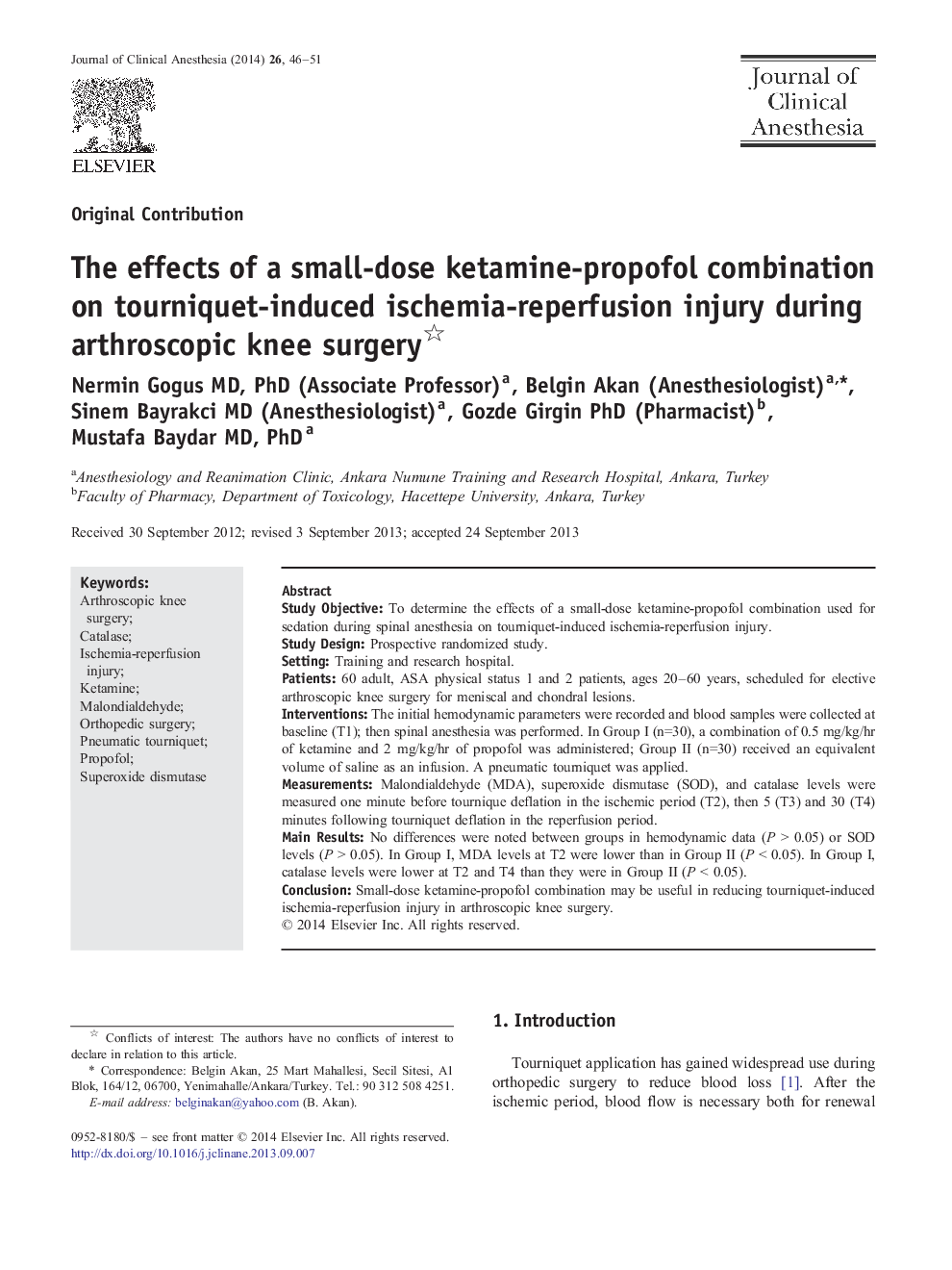| Article ID | Journal | Published Year | Pages | File Type |
|---|---|---|---|---|
| 2762441 | Journal of Clinical Anesthesia | 2014 | 6 Pages |
Study ObjectiveTo determine the effects of a small-dose ketamine-propofol combination used for sedation during spinal anesthesia on tourniquet-induced ischemia-reperfusion injury.Study DesignProspective randomized study.SettingTraining and research hospital.Patients60 adult, ASA physical status 1 and 2 patients, ages 20–60 years, scheduled for elective arthroscopic knee surgery for meniscal and chondral lesions.InterventionsThe initial hemodynamic parameters were recorded and blood samples were collected at baseline (T1); then spinal anesthesia was performed. In Group I (n=30), a combination of 0.5 mg/kg/hr of ketamine and 2 mg/kg/hr of propofol was administered; Group II (n=30) received an equivalent volume of saline as an infusion. A pneumatic tourniquet was applied.MeasurementsMalondialdehyde (MDA), superoxide dismutase (SOD), and catalase levels were measured one minute before tournique deflation in the ischemic period (T2), then 5 (T3) and 30 (T4) minutes following tourniquet deflation in the reperfusion period.Main ResultsNo differences were noted between groups in hemodynamic data (P > 0.05) or SOD levels (P > 0.05). In Group I, MDA levels at T2 were lower than in Group II (P < 0.05). In Group I, catalase levels were lower at T2 and T4 than they were in Group II (P < 0.05).ConclusionSmall-dose ketamine-propofol combination may be useful in reducing tourniquet-induced ischemia-reperfusion injury in arthroscopic knee surgery.
